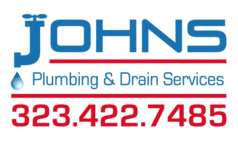Clean, safe drinking water is essential for our daily lives and overall health. Despite efforts made by local municipalities to provide high-quality water, contaminants can still find their way into the tap water in Los Angeles homes. Installing a water filtration system helps ensure that your family has access to clean, healthy water by removing harmful pollutants and improving water quality. However, selecting the right water filtration system and keeping it well-maintained requires expert knowledge and skilled professionals.
In this detailed guide, we aim to provide accurate and valuable information about the various types of water filtration systems available in the market, their specific purposes, and the benefits of investing in professional installation and maintenance services. As a trusted provider of residential plumbing services in Los Angeles, our goal is to educate homeowners about the significance of water filtration, enabling you to make informed decisions that promote your family’s well-being and contribute to a sustainable living environment.
Water filtration systems come in numerous forms and employ different technologies to target specific contaminants and impurities. By understanding the distinctions between these systems, their advantages and limitations, and how they can enhance water quality in your home, you can better determine the ideal solution tailored to your unique needs and preferences.
Join us as we delve into the world of water filtration systems, discussing their importance for Los Angeles homeowners, the diverse range of options available, and the role of professional installation and maintenance in ensuring optimal performance, longevity, and peace of mind.
Types of Water Filtration Systems
A wide variety of water filtration systems are available to suit differing needs. Here, we discuss some of the most popular options:
– Activated Carbon Filters: This type of filter effectively removes chlorine, sediment, volatile organic compounds (VOCs), and unpleasant odors. They’re commonly used in point-of-use systems such as countertop or faucet-mounted filters.
– Reverse Osmosis Systems: These systems use a semi-permeable membrane to filter out contaminants, including heavy metals, fluoride, and bacteria. Reverse osmosis (RO) systems are typically installed under sinks or as whole-house units.
– Ion Exchange Filters: Designed to soften hard water, ion exchange filters remove minerals such as calcium and magnesium by replacing them with sodium or potassium ions.
– Ultraviolet (UV) Purification Systems: Ideal for eliminating bacteria, viruses, and other microbial contaminants, UV systems use ultraviolet light to disinfect water without adding chemicals.
Factors to Consider When Choosing a Water Filtration System
Several factors should be considered when selecting the right water filtration system for your home:
– Water Quality: Evaluate your water quality by obtaining a water report or performing a home water test to identify specific contaminants that need to be removed.
– Filtration Goals: Determine your primary objectives, such as removing specific pollutants, improving water taste, or softening hard water.
– Installation Location: Consider the space available for installing a filtration system, whether it’s under the sink, on the countertop, or as a whole-house unit.
– Budget: Factor in the price of the filtration system itself, as well as the costs associated with installation, maintenance, and replacement filters.
Benefits of Professional Installation and Maintenance
While some water filtration systems can be installed DIY, there are numerous advantages to relying on professional installation and maintenance services:
– Expertise: Experienced plumbers possess the necessary knowledge to recommend the ideal water filtration system based on your water quality, needs, and preferences. They can accurately assess any potential installation challenges and provide tailored solutions.
– Proper Installation: Professionals ensure that your filtration system is installed correctly, adhering to local and state regulations, and manufacturer guidelines, which ultimately extends the lifespan of the system.
– Maintenance and Repairs: Regular maintenance by a professional plumber guarantees optimal performance, prevents malfunctions or damage, and prolongs the system’s life, ultimately saving you time and money in the long run.
The Importance of Regular Maintenance
To maintain the efficiency and longevity of your water filtration system, regular maintenance is crucial:
– Cleaning and Replacing Filters: Filter cartridges should be cleaned or replaced according to the manufacturer’s recommendations, as buildup can reduce system effectiveness and cause damage.
– Inspecting for Leaks: Regularly check connections and fixtures for potential leaks, as they can lead to water damage and reduced filtration efficiency.
– System Evaluation: Periodically assess your water filtration system’s overall performance, and consult a professional plumber if you notice any decline in water quality.
Conclusion:
Investing in a water filtration system not only ensures that your family has access to clean, safe drinking water but also contributes to a healthier, more sustainable living environment. By understanding the various types of water filtration systems available, their specific purposes, and the importance of professional installation and maintenance, you can make informed decisions that benefit your home and loved ones.
If you’re considering a water filtration system for your Los Angeles home, trust the experienced team at John’s Plumbing & Drain Services to help you select, install, and maintain the perfect system tailored to your needs. Contact us today to learn more about our comprehensive residential plumbing services and how we can assist you in achieving optimal water quality and peace of mind.

















